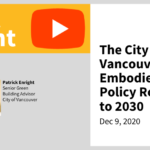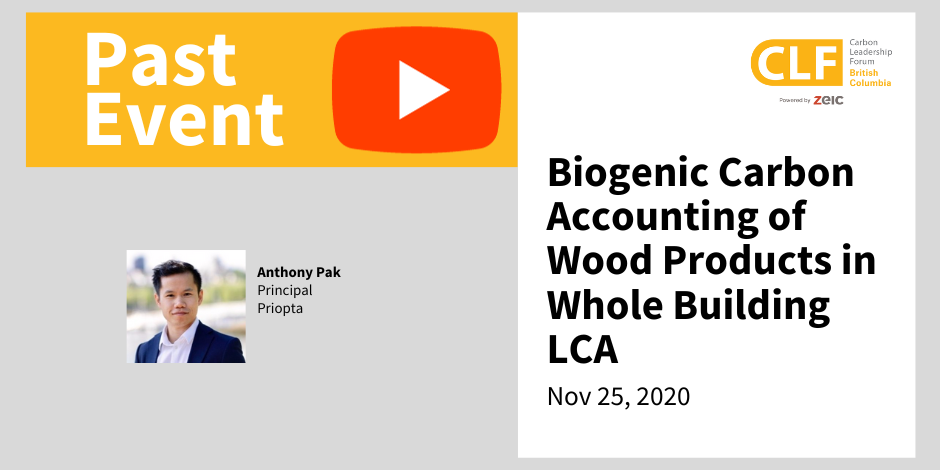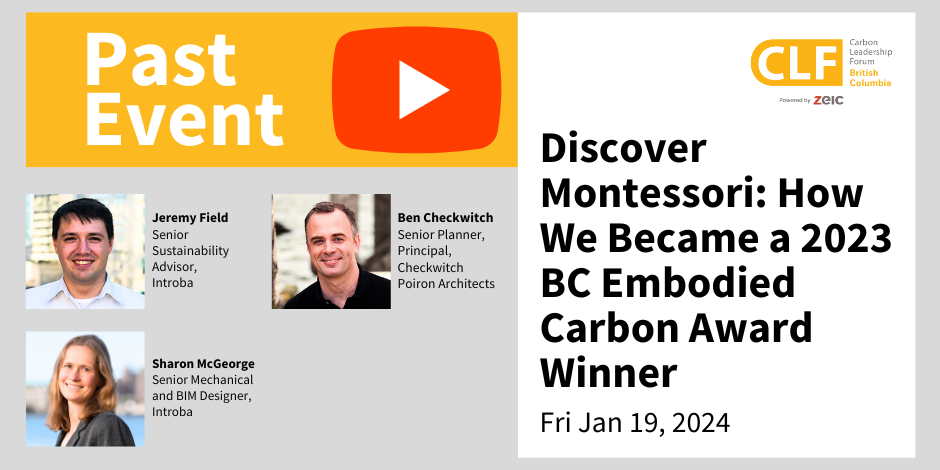
Embodied Carbon of MEP Systems and Refrigerants
September 15, 2020
The City of Vancouver’s Embodied Carbon Policy Roadmap to 2030
December 9, 2020
PAST EVENT: Anthony Pak (Principal at Priopta and Founder of CLF Vancouver) gives an overview of a complex and important topic—how biogenic carbon of wood products are accounted for in Whole Building Life Cycle Assessments (WB-LCA). He presents his summary of the latest research and information on this topic, which is for a study commissioned by the City of Vancouver.
This presentation covers:
What is biogenic carbon, and why is it important?
Overview of how biogenic carbon is addressed in common LCA standards and the latest industry average EPDs for wood products.
How do different WB-LCA software tools (i.e. Athena IE4B, Tally, and One Click LCA) address biogenic carbon? What are the underlying assumptions, and how do they impact WB-LCA case study results?
Introduction to GWPbio, a dynamic approach to modelling biogenic carbon that accounts for factors such as forest rotation period and product carbon storage period.
Presentation of preliminary calculations using the newly released Biogenic Carbon Footprints Calculator for Harvested Wood Products by WWF and Quantis, which builds on the latest research on GWPbio.
Download Slides: https://bit.ly/3mgVBaR
Run of Show:
0:00 Intro
1:15 Outline for talk
3:10 Importance of Biogenic Carbon
9:39 Biogenic Carbon Accounting Intro
19:28 Biogenic Carbon Accounting in WBLCA Tools (Athena, Tally, One Click LCA)
29:53 Biogenic Carbon Accounting in EPDs
35:14 GWPbio Methodology
39:37 GWPbio Calculator by WWF and Quantis 4
6:31 GWPbio Scenario Results Using Calculator
55:19 Importance of Forests - BC Old Growth
1:01:19 BC Forest-Related GHG Emissions
1:04:27 Summary of Key Points
1:11:24 Q&A





